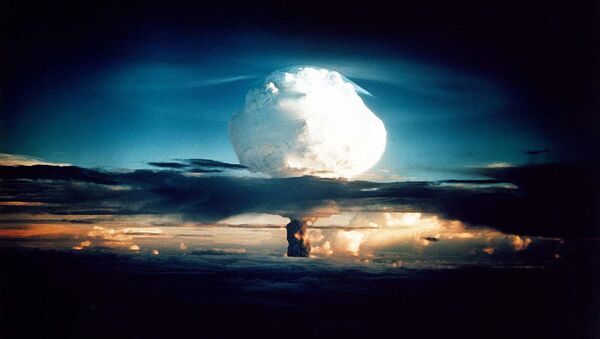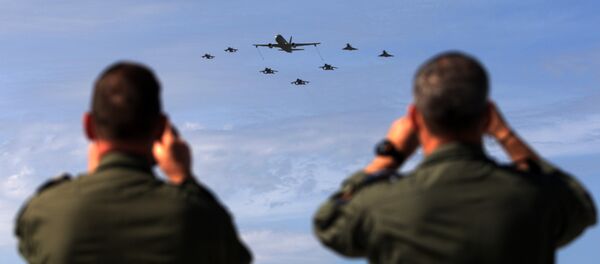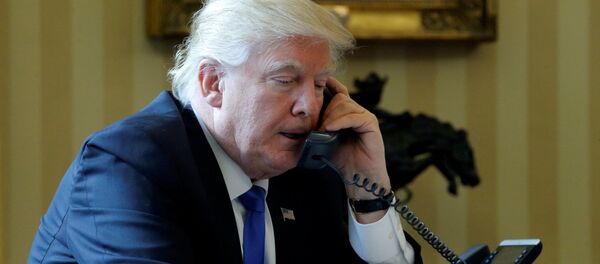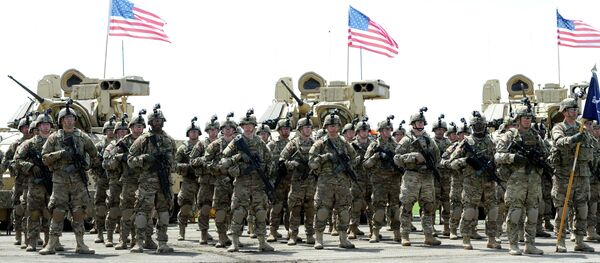The study was commissioned by the US Congress prior to Trump's inauguration, and calls for the Office of the Director of National Intelligence and the Pentagon's Strategic Command (which plans and would carry out US nuclear strikes) to evaluate Russian and Chinese leadership survivability following a hypothetical US nuclear attack.
The review is provided for in the 2017 National Defense Authorization Act, which passed the House and Senate before being signed into Law by President Barack Obama on December 23.
Section 1669 of the NDAA, entitled 'Report on Russian and Chinese Political and Military Leadership Survivability, Command and Control, and Continuity of Government Programs and Activities', calls on the ODNI to submit to Congress a report on what would happen if Moscow and Beijing were subjected to a limited or full-scale nuclear attack.
It also expects US intelligence to identify "which facilities various senior political and military leaders of each respective country are expected to operate out of during crisis and wartime," and to offer a "technical assessment of the political and military means and methods for command and control in wartime." The report also asks for the Russian and Chinese officials and organizations "involved in manning and operating such facilities, programs, and activities" to be identified.
Making very clear that it is referring to a hypothetical US nuclear attack against Russia and/or China, the NDAA asks for the expected survivability "such programs and activities can be expected to provide in various military scenarios ranging from limited conventional conflict to strategic nuclear employment."
Following the intelligence review, the Commander of US Strategic Command is expected to "submit to the appropriate Congressional committees" his views on what "plans and options" STRATCOM has for its nuclear war planning efforts.
US business news agency Bloomberg pointed out that that the Congressional review seems to contrast with President Trump's own posture on strategic nuclear weapons. While the President has pledged to modernize, "greatly strengthen and expand" America's nuclear capabilities, he has also proposed negotiations with Moscow on the reduction in the two countries' nuclear arsenals.
On Friday, Trump ordered Mattis to "initiate a new Nuclear Posture Review to ensure that the United States nuclear deterrent is modern, robust, flexible, resilient, ready, and appropriately tailored to deter 21st-century threats and reassure our allies."
STRATCOM has been tight-lipped about the review of the Russian and Chinese leadership's nuclear survivability. "Our experts are drafting an appropriate response," STRATCOM spokesman Navy Captain Brook DeWalt told Bloomberg in an email. He added only that while "it's premature to pass along any details at this point, we can update you further at a later date."
Commenting on the review, Radio Sputnik contributor Vladimir Bychkov called out the "madness" of the plans. "Apparently, members of Congress still believe that a nuclear war can be fought and won and that they themselves will stay alive. Unbelievable!" he exclaimed.
For his part, political scientist Igor Niklaichuk told Radio Sputnik that he wasn't so concerned about the review, suggesting that such evaluations are common among the nuclear powers, and subject to being updated from time to time.
The question that remains is why the report was commissioned in the twilight of President Obama's term in office, and what impact its presentation to Congressional leaders sometime in the near future may have on the diplomatic proposals for rapprochement now circulating between Moscow and Washington. After all, necessary or not, reviews asking 'what would happen if our country nuked yours' aren't exactly designed to inspire confidence in the other side.




